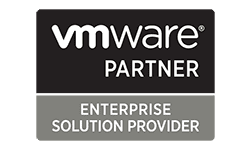The Hidden Power of Business Intelligence: Driving Insights for Success
Actionable Insights and Practical Applications in Areas of Business Intelligence
Kelsey Young, Copywriter and Media Specialist
7 Min Read

Business intelligence and data analytics have become essential tools for organizations seeking actionable insights and practical applications in today’s data-driven world. Acting on the gathered data creates transformative potential of business intelligence across various areas, propelling organizations toward success. By harnessing the power of data analytics, companies gain the ability to identify emerging trends, analyze customer behavior, and make data-driven decisions. Leveraging business intelligence, organizations can unlock valuable insights to optimize operational efficiency, streamline processes, and identify opportunities for growth. Moreover, advanced analytics techniques enable businesses to detect patterns, predict outcomes, and take proactive measures to stay ahead of the competition.
Investing in business intelligence empowers organizations to understand market dynamics, customer preferences, and industry trends, allowing them to adapt swiftly to changing landscapes. By utilizing data analytics, businesses gain a competitive edge by uncovering hidden opportunities, identifying potential risks, and driving innovation. Moreover, through data visualization and interactive reporting, stakeholders can easily comprehend complex information, leading to improved collaboration and informed decision-making at all levels of the organization.
Enterprise Intelligence
Enterprise Intelligence encompasses a holistic view of resources, processes, finance, customers, marketing, sales, and more, providing organizations with comprehensive insights. It enables company performance analytics to measure and evaluate various aspects of operations, identifying strengths, weaknesses, and areas for improvement. Strategic corporate planning is facilitated by Enterprise Intelligence, aligning goals, initiatives, and resources with market trends and customer preferences. Prediction and forecasting, including financial and demand forecasting, empower organizations to anticipate future trends and make informed decisions. With Enterprise Intelligence, businesses gain actionable insights for optimizing performance, driving growth, and staying ahead in a dynamic market landscape.
Operational Intelligence
Actionable insights within the Operational Intelligence sector of a business provide valuable real-time information for enhancing operational efficiency. These insights enable organizations to optimize processes, implement proactive maintenance, detect anomalies, allocate resources effectively, and automate workflows. By leveraging data analytics, businesses can streamline operations, minimize downtime through proactive maintenance, identify irregularities, improve resource utilization, and drive efficiency through workflow automation. Operational Intelligence empowers organizations to make data-driven decisions, enhancing productivity and profitability.
Financial Intelligence
Financial Intelligence within business intelligence provides continuous visibility into corporate financial performance. It enables organizations to track revenue, expenses, and profitability, gaining insights for informed decision-making. Financial planning and budgeting are practical applications that help businesses allocate resources effectively and set financial goals. Additionally, financial risk forecasting and management leverage data analytics to identify potential risks, allowing proactive measures to mitigate them. With Financial Intelligence, organizations gain actionable insights for optimizing financial performance, ensuring stability and sustainable growth.
Customer intelligence
Customer Intelligence in business intelligence revolves around understanding and leveraging customer data to drive informed decision-making. It encompasses customer segmentation and behavior analytics, allowing organizations to identify distinct customer groups and tailor strategies accordingly. Customer value analytics helps determine the most valuable customers and optimize marketing and sales efforts. Customer satisfaction analysis enables businesses to evaluate and enhance customer experience, fostering loyalty and retention. Additionally, predictive modeling helps forecast customer behavior and manage churn risks. With Customer Intelligence, organizations gain actionable insights that empower them to deliver personalized experiences, maximize customer value, and foster long-term relationships.
Brand and Product Intelligence
Brand and Product Intelligence in business intelligence revolves around leveraging data to gain insights into brand performance and optimize product strategies. It enables organizations to analyze product/service profitability and optimize their portfolio for better resource allocation. Marketing campaign and loyalty program analysis helps assess the effectiveness of initiatives and make data-driven decisions for improved customer engagement and retention. Brand portfolio and brand awareness analysis provide insights into the performance of different brands and their recognition in the market. Competitor benchmarking allows organizations to compare their brand and product performance against industry competitors, identifying areas of improvement and potential opportunities. With Brand and Product Intelligence, businesses gain actionable insights to drive profitability, enhance brand awareness, and gain a competitive edge in the market.
Human Resources Intelligence
Human Resources Intelligence focuses on utilizing data analytics to gain insights into various aspects of employee management and optimize HR strategies. It involves employee/department performance analysis, enabling organizations to evaluate individual and team productivity, identify areas for improvement, and allocate resources effectively. Employee experience and satisfaction analysis helps measure and enhance engagement, job satisfaction, and overall employee well-being. HR Intelligence also aids in identifying the effectiveness of employee retention strategies, allowing organizations to take proactive measures to improve retention rates. Moreover, through employee hiring strategy analysis, businesses can optimize their recruitment processes to attract and select the most qualified candidates. By leveraging Human Resources Intelligence, organizations can make data-driven decisions to improve employee performance, satisfaction, retention, and overall HR efficiency.
Manufacturing Intelligence
Manufacturing Intelligence leverages data analytics to optimize manufacturing processes and improve overall equipment effectiveness. It involves the analysis and optimization of Overall Equipment Effectiveness (OEE), which assesses the efficiency and performance of production equipment. By monitoring and analyzing manufacturing process quality, organizations can identify and address any deviations or issues promptly, ensuring consistent product quality. Additionally, Manufacturing Intelligence enables effective equipment maintenance scheduling, allowing organizations to proactively plan maintenance activities and minimize downtime. By harnessing data-driven insights, organizations can streamline operations, improve productivity, and enhance the overall efficiency and effectiveness of their manufacturing processes.
Supply Chain Intelligence
Supply Chain Intelligence focuses on leveraging data analytics to optimize supply chain operations and enhance decision-making. It encompasses supply chain visibility and monitoring, providing organizations with real-time insights into the movement of goods, inventory levels, and logistics performance. By identifying demand drivers and employing consumer demand forecasting, businesses can accurately anticipate customer needs and optimize inventory management. Demand/supply balancing ensures efficient allocation of resources and inventory to meet customer demands while minimizing costs. Additionally, Supply Chain Intelligence enables organizations to perform supply chain risk analytics, identifying potential risks and developing proactive mitigation strategies. With actionable insights derived from Supply Chain Intelligence, businesses can achieve enhanced operational efficiency, improved customer satisfaction, and reduced supply chain risks.
Transportation and Logistics Intelligence
Transportation and Logistics Intelligence leverages data analytics to optimize operational planning and enhance decision-making in the transportation and logistics industry. It encompasses operational capacity planning and optimization, enabling organizations to efficiently allocate resources, streamline routes, and improve overall logistics performance. Predictive analytics for vehicle maintenance help identify potential maintenance needs, reducing unplanned downtime and optimizing fleet utilization. Vehicle supply allocation and dispatch management ensure effective coordination of vehicles and drivers, maximizing efficiency and meeting customer demands. Moreover, IoT data analytics plays a crucial role in ensuring safe cargo delivery by monitoring factors such as temperature, humidity, and security throughout the transportation process. With Transportation and Logistics Intelligence, businesses can achieve cost savings, improve operational efficiency, and enhance customer satisfaction in the dynamic world of transportation and logistics.
Healthcare Intelligence
Healthcare Intelligence utilizes data analytics to drive improvements in patient care, operational efficiency, and fraud detection within the healthcare industry. It involves patient health condition monitoring, allowing healthcare providers to track and optimize patient treatment plans based on real-time data. Assessment of patient risks and personalized care plan recommendations enable healthcare professionals to deliver targeted and individualized care. Healthcare Intelligence also plays a vital role in fraud detection in healthcare insurance, identifying suspicious patterns and anomalies in claims data to mitigate fraudulent activities. Moreover, it helps optimize medical staff workload by predicting demand and optimizing work shifts for improved resource allocation. Additionally, healthcare intelligence enables the optimization of clinical space and equipment usage, ensuring efficient utilization and reducing costs. By leveraging healthcare intelligence, organizations can enhance patient outcomes, reduce fraud, optimize resource allocation, and improve overall healthcare delivery.
Ecommerce Intelligence
Ecommerce Intelligence utilizes data analytics to drive growth and optimize various aspects of online businesses. It involves customer behavior analytics and segmentation, allowing organizations to understand their customers better and tailor marketing strategies accordingly. Sales performance analytics help businesses evaluate sales trends, identify top-performing products, and optimize sales strategies. Multi-echelon inventory optimization and demand forecasting enable effective inventory management and ensure products are available to meet customer demands. Pricing analytics and dynamic price optimization assist in setting competitive and profitable pricing strategies. Ecommerce marketing analytics provide insights into marketing campaigns, customer acquisition, and conversion rates. By leveraging Ecommerce Intelligence, businesses can enhance customer experiences, increase sales, improve inventory management, optimize pricing, and make data-driven decisions to thrive in the competitive online marketplace.
Harness the Potential of your BI with GDC
GDC provides affordable business intelligence solutions customized to our clients’ needs. Get started with business intelligence and see your business grow.
Reach out to the GDC team to take the next step.




